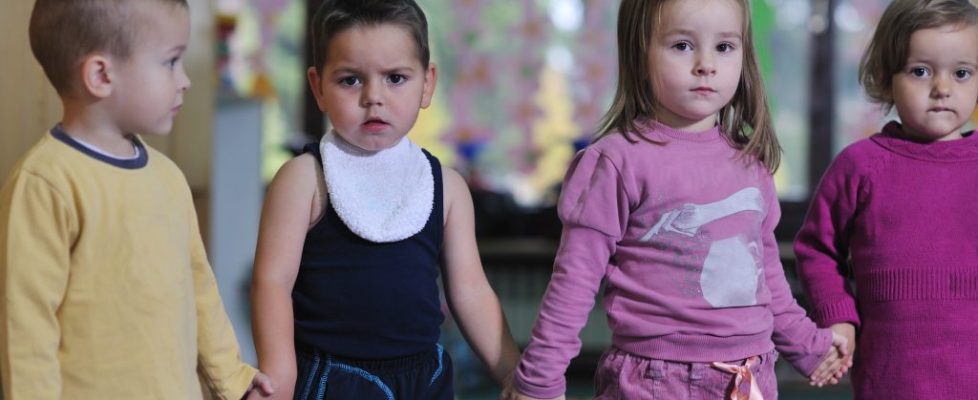How Team Sports Foster Cooperation and Leadership Skills
Why playing with others builds social intelligence, teamwork, and confidence in children
When a child passes a ball to a teammate, cheers after a goal, or strategizes during a game, they are doing more than playing—they are learning life skills. Team sports provide a unique environment where children aged 2 to 10 can develop cooperation, communication, and leadership in ways no other activity can replicate.
While many adults focus on the physical benefits of sports—strength, endurance, and coordination—research shows that the social and emotional learning outcomes of team play are equally, if not more, important.
Cooperation: Learning to Work With Others
Team sports are a natural setting for teaching cooperation. Unlike individual activities, success in a team depends on collective effort. Children must learn to coordinate, communicate, and trust their teammates to achieve shared goals.
Even at young ages, simple games like mini soccer, relay races, or cooperative obstacle courses teach critical lessons:
- Taking turns and sharing responsibilities
- Listening to instructions and feedback
- Supporting peers who are struggling
A 2018 study in Frontiers in Psychology found that children participating in structured team sports demonstrated higher social competence and empathy compared to peers in individual sports or unstructured play.¹ Children who regularly engage in team activities are better able to collaborate, compromise, and resolve conflicts, skills that carry over into school, family life, and later professional environments.
Communication Skills: Learning to Express and Listen
Communication is a cornerstone of teamwork. In sports, children must verbalize strategies, give encouragement, and receive feedback—all while paying attention to nonverbal cues.
Even simple instructions, such as “pass the ball” or “cover your teammate,” require children to articulate thoughts clearly and listen actively. Over time, these skills improve self-expression, confidence, and emotional intelligence.
Research from the Journal of Applied Developmental Psychology (2019) found that children involved in team sports scored higher on measures of assertiveness, active listening, and cooperation, demonstrating the direct link between athletic collaboration and communication development.²
Leadership Skills: Learning to Guide and Inspire Others
Team sports provide early opportunities for children to develop leadership skills. Leadership in childhood does not always mean captaining a team—it can manifest as:
- Encouraging a teammate who is struggling
- Taking initiative during a game
- Problem-solving with peers to create a strategy
These experiences cultivate confidence, decision-making, and responsibility. Leadership skills learned in sports often translate to the classroom, helping children contribute in group projects, participate in discussions, and mentor peers.
A 2020 study in Psychology of Sport and Exercise highlighted that children who participated in team sports were more likely to display proactive social behaviors and self-initiative, laying the groundwork for lifelong leadership development.³
The Role of Failure and Resilience
Team sports also teach children to navigate setbacks and challenges. Losing a game, missing a shot, or making a mistake in a relay requires children to regulate emotions, maintain motivation, and support teammates.
Resilience—the ability to recover from adversity—is strongly linked to future success in academics, relationships, and career paths. According to a 2017 study in Developmental Psychology, children involved in team sports demonstrated higher resilience and self-efficacy compared to non-athletes.⁴ They learned that mistakes are opportunities for growth, and success often requires collaboration rather than individual effort.
Cognitive Benefits of Team Play
Team sports don’t just build social skills—they also enhance cognitive abilities. Strategy-based games require children to:
- Plan sequences of action
- Anticipate teammates and opponents’ moves
- Make quick decisions under pressure
These activities strengthen executive functions—skills like problem-solving, flexible thinking, and working memory—which are essential for academic achievement. A 2019 review in Frontiers in Psychology found that children who regularly engaged in team sports performed better on attention, memory, and cognitive flexibility tasks, supporting the link between physical collaboration and intellectual growth.⁵
The Emotional Dimension: Confidence and Self-Esteem
Playing on a team nurtures emotional intelligence and self-confidence. Achievements in sports—scoring a goal, completing a successful pass, or helping a teammate—provide tangible reinforcement of ability and effort.
Moreover, being part of a team helps children feel valued and connected, contributing to overall well-being. This sense of belonging reduces anxiety, increases resilience, and motivates children to engage in challenges both on and off the field.
A 2020 study from the Journal of Sports Sciences found that children participating in organized team sports exhibited higher self-esteem and lower social anxiety than peers involved in individual sports or sedentary activities.⁶
Kidokinetics: Structured Team Play for Lifelong Skills
Programs like Kidokinetics recognize that early childhood is a critical period for developing social intelligence through physical activity. Kidokinetics integrates team-based games, cooperative challenges, and movement activities designed to enhance both motor skills and social-emotional development.
Children in Kidokinetics programs learn to:
- Cooperate with peers in fun, age-appropriate games
- Develop leadership by encouraging and guiding others
- Practice resilience and problem-solving in a supportive environment
- Build confidence through participation and accomplishment
By combining movement, structured play, and social skill development, Kidokinetics ensures that children gain both physical competence and emotional intelligence, preparing them for success in school, sports, and life.
Practical Tips for Parents and Educators
You can foster cooperation and leadership skills through team-based activities at home or school:
- Encourage cooperative games: Relay races, scavenger hunts, and team challenges teach teamwork.
- Rotate leadership roles: Let children take turns guiding small groups or explaining rules.
- Celebrate collaboration, not just winning: Emphasize shared effort and support for teammates.
- Debrief experiences: After a game, discuss strategies, what went well, and how challenges were handled.
- Mix structured and unstructured play: Structured sports teach rules and strategy, while free team games encourage creativity and problem-solving.
These practices reinforce the social, emotional, and cognitive benefits of team sports, giving children tools for lifelong success.
Conclusion: Building Character Through Teamwork
Team sports are much more than physical activity—they are training grounds for social intelligence, leadership, and resilience. Children who participate in team play learn to cooperate, communicate, and guide others while navigating challenges, setbacks, and success.
By integrating programs like Kidokinetics, children gain structured opportunities to develop teamwork, leadership, and confidence in supportive, playful environments. These experiences prepare children not only for athletic success but also for academic achievement, social competence, and emotional well-being.
When children learn to work together, they also learn to lead, persevere, and thrive—a skill set that will benefit them for a lifetime.
References
- Holt, N.L., & Neely, K.C. (2018). Frontiers in Psychology. “Social and Emotional Benefits of Team Sports in Children.”
- Eime, R.M., et al. (2019). Journal of Applied Developmental Psychology. “Team Sports and Social Competence.”
- Weiss, M.R., & Wiese-Bjornstal, D.M. (2020). Psychology of Sport and Exercise. “Leadership Development in Youth Sports.”
- Gagné, M., et al. (2017). Developmental Psychology. “Resilience Through Organized Sports Participation.”
- Lubans, D.R., et al. (2019). Frontiers in Psychology. “Cognitive Benefits of Physical Activity and Team Play.”
Fraser-Thomas, J., et al. (2020). Journal of Sports Sciences. “Self-Esteem and Anxiety in Children Participating in Team Sports.”





